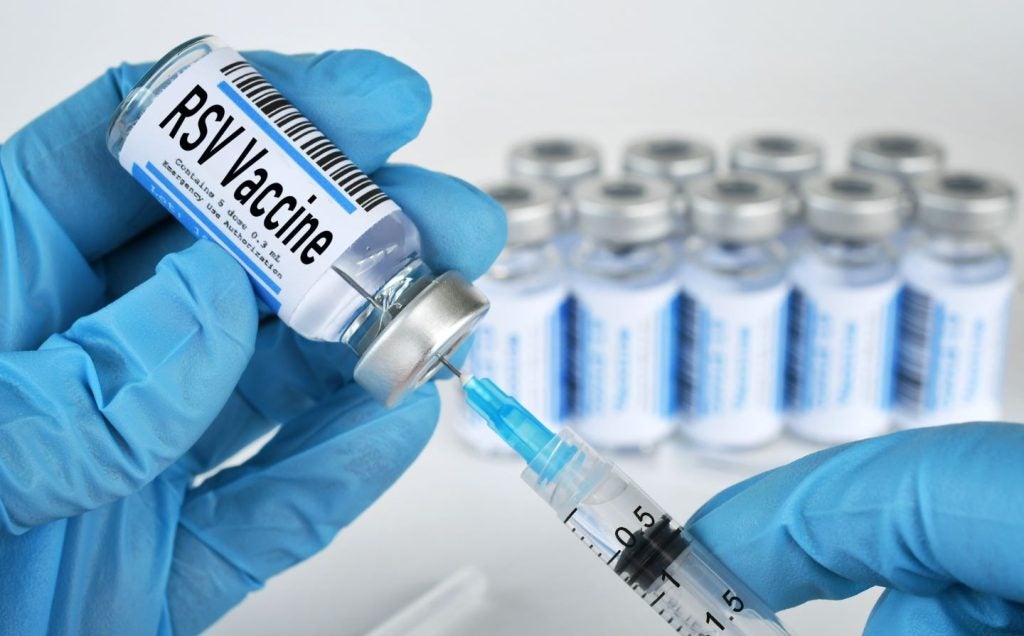
There were numerous articles in 2017 that covered a wide range of topical issues. Here are ten of the best stories you might have missed… (click the headline to finish reading the story)
10. Unlocking the Potential of Risk-Based Monitoring in Oncology Clinical Trials
The purpose of trial monitoring is to ensure the rights and wellbeing of human subjects are protected, and the reported trial data are accurate, complete and verifiable from all source documents. To achieve this purpose, the monitor has nearly 20 tasks (as defined by ICH E6 GCP1), including but not limited to source data verification (SDV). For decades, 100 percent SDV was deemed by pharma as the most effective procedure for achieving high quality data, despite the fact this practice was neither requested by the regulators (and/or applicable guidelines) nor proving effective.
9. The Canadian Clinical Trials Coordinating Centre – A Unique Partnership for Promoting Canada as a Destination for Clinical Trials: Part I
In the last decade, there has been a trend towards increasing clinical trial investment in the developing world including Eastern Europe, South America, China, and India at the expense of Canada, the Unites States and Western European countries. The recognition that Canada was losing its competitive edge in attracting clinical trials led to a meeting of stakeholders in 2011 to discuss how best to address the loss of competitiveness.
Over 125 Canadian stakeholders from industry, provincial and federal governments, academia, and health care institutions came together under the umbrella of the Clinical Trial Summit in 2011. The goal was to identify and develop steps to address the most pressing issues responsible for Canada’s loss of competitiveness in attracting clinical trials. The summit was organized through a partnership between industry (Innovative Medicines Canada), government (the Canadian Institutes of Health Research), health care organizations, and hospitals (HealthCareCAN).
8. Bid Defenses – Considerations and Best Practices
It’s important to note that while it seems obvious, a bid defense cannot get underway without providing a good proposal. Therefore, it’s incumbent upon the sponsor to provide a Request for Proposal (RfP) that’s as thorough as possible. It needs to include timelines, draft protocol, project specifications, assumptions, and crucially, key questions for the CRO.
What’s more, the sponsor should be upfront with prospective CROs about the complexity of the trial and how hard it will be to conduct. For the CRO, the bid defense should be an opportunity for the company to demonstrate their credentials. Critically, it’s a chance to introduce their team; sponsors will want to meet and get to know the people they may soon be working with.
How well do you really know your competitors?
Access the most comprehensive Company Profiles on the market, powered by GlobalData. Save hours of research. Gain competitive edge.

Thank you!
Your download email will arrive shortly
Not ready to buy yet? Download a free sample
We are confident about the unique quality of our Company Profiles. However, we want you to make the most beneficial decision for your business, so we offer a free sample that you can download by submitting the below form
By GlobalData7. Trump’s FDA Deregulation Could Prove a Poisoned Chalice for Drugmakers
Uncertainty surrounding Donald Trump’s position on drug pricing and reform has evoked a nervous response from investors.
Pharma stocks suffered following comments on Jan. 11 that pharmaceutical companies are “getting away with murder,” and an implied threat that the ban on federal government negotiating drug prices for Medicare could be lifted.
Three weeks later, the newly inaugurated president had seemingly U-turned on his previous comments following a meeting with CEOs of Merck & Co., Novartis AG, Johnson & Johnson, Eli Lilly & Co., Celgene, and Amgen, as well as the head of PhRMA. He distanced himself from price controls, referring to it as price fixing.
6. Real World Data: A Pressing Need for Harmonizing the Standards of Evidence Generation
The first randomized clinical trial testing a curative treatment was performed in England in 1946 by the Medical Research Council on the antibiotic drug streptomycin. In that era, striking examples of non-interventional studies had also been revealed in metabolic disorders, cancer, and rheumatic fever (Dawber, Meadors and Moore, 1951).
Driven by the evolution of ethics, safety and regulatory requirements, major steps, such as the Helsinki Declaration, the creation of Good Clinical Practices / Good Pharmacovigilance Practices, and the International Conference on Harmonization (1996) led to a high level of standardization for clinical trials. But real world data studies aiming at generating real world evidence also need a higher level of standardization. Even in the absence of intervention or randomization of participants, real world evidence needs to rely on harmonized good practices.
5. Disclosure of Clinical Trial Data by the EMA: Where are we now?
When, and in what circumstances, a third party can access clinical trial data submitted to the European Medicines Agency (EMA) once a product has been authorized continues to be a hot topic in the European Union (EU). The EMA has stated that one of its key goals is the publication of clinical trial data once the decision-making process is complete. This is because, it is said, it is important to establish trust and confidence in the regulatory system so the public has a better understanding of the regulatory decision-making process.
The EMA’s position has received the support of academic researchers and patient groups. There appears to be a perception that companies have, in the past, hidden “unhelpful” data and have not been pro-active in publishing negative results, so that many believe companies cannot be trusted to independently release data about their products. Indeed, a recent academic study, published in the British Medical Journal, systematically assessed the disclosure policies of pharmaceutical company clinical trial sponsors, and found them to be “highly variable.”
4. Peace at Last? – Final Guidance on Lay Summaries of Clinical Study Results Released
After a long wait, it was at the beginning of August that the final guidance on lay summaries of clinical trial results was released as part of the EudraLex Volume 10 update (see references). Everybody in the new field of lay summaries had eagerly awaited the arrival of the final guidance as it was expected to remove a lot of insecurity on the interpretation of the EU clinical trial regulation.
The EU clinical trial regulation 536/2014 was the first regulation worldwide that mandates a “summary of study results that is understandable to laypersons” for all clinical trials conducted in the European Union. This was a big step towards transparency and greater patient friendliness. For the first time a document summarizing the results of a clinical study needs to be developed explicitly for a lay audience. However, the EU regulation contains only a scant outline of the content requirements of lay summaries. All that was provided in the regulation was a 10-bullet point list. It was soon felt that this innovative idea of a study results summary for the general public needs a lot more guidance.
3. Brexit and the Impact on Clinical Research
The U.K. Government triggered the formal procedure to exit the European Union on March 29, 2017. The U.K. and the EU institutions are now determining the arrangements for the orderly withdrawal of the U.K. Unless an extension is agreed, this process must be completed by March 29, 2019, and so while negotiations on the terms of the U.K.’s departure have not yet officially begun, EU institutions and government departments in the U.K. have started their planning activities.
Unsurprisingly, the nature of the U.K.’s departure and its relationship with the EU once it ceases to be a Member State has attracted a great deal of speculation. There is considerable uncertainty surrounding how Brexit will actually work, not least because no Member State has left the EU in its current form.
2. Biomarker Considerations for Early Phase Clinical Trials
The average cost of drug development is $1 Billion over the course of 10 years. In recent times, there has been a need for personalized medicine treatments. In many therapeutic areas, patient therapy can be ineffective, oncology and Alzheimer drugs, in particular, are the two most ineffective. Personalized medicine would enable the ability to take advantage of the fact that many tumors are driven by certain genetic mutations.
Biomarkers are important for the success of clinical trials, and for that reason, it’s beneficial to adopt the 5R framework: Right target, Right tissue, Right safety, Right patients, Right commercial potential, and Right culture. Take for instance the Crizotinib (Pfizer ALK inhibitor) Approval Success Story: Two single arm studies (n=119 and n=136) in four years with shorter time, fewer patients, and less money.
1. General Data Protection Regulation: The Impact on Clinical Trials and Data Subjects
The EU rules on data protection seek to protect individuals by placing restrictions on the processing (collecting, storing or using) of their personal data. Under the new General Data Protection Regulation 2016/679/EU (“GDPR”), which will apply throughout the EU from May 25, 2018, these rules have been strengthened: data subjects have new rights to help ensure their data are processed securely and with adequate protections, and clearer responsibilities and obligations are placed on companies using such data.
However, these strengthened rights do not necessarily fit neatly with other sector specific legislation where large quantities of data are collected and processed. In particular, the GDPR raises some important questions for clinical trials, one of the fundamental aspects of which is the collection and analysis of sensitive personal data. Importantly, there are no transitional rules governing how data currently held and being collected will be dealt with once the GDPR becomes applicable, although guidance is expected before May 2018 to clarify how some of these provisions will operate.
PHOTO CREDIT: Sam Churchill







